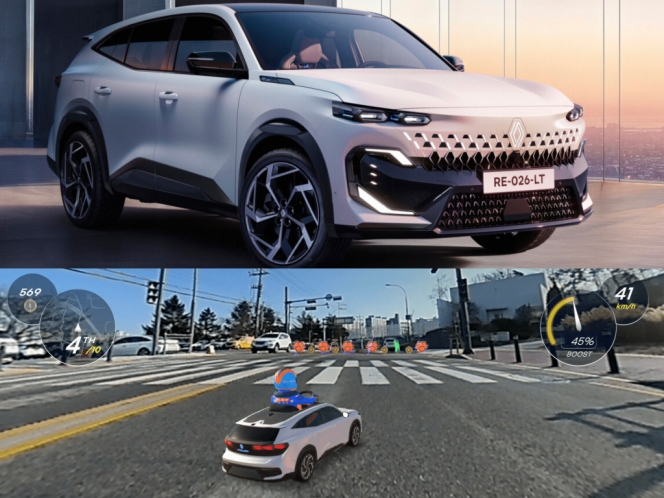AI-Based Visual Inspection: Enhancing The Automotive Industry
- By Juili Eklahare
- May 14, 2022

Artificial intelligence (AI) is an evolving technology that is still growing, but it is undoubtedly getting better.
For all we know, factories might not even need lights 20 years later, because most of them will be operated by AI. We see a lot of R&D happening within the AI framework, giving good results. Besides, we see newer frameworks coming in.
AI-based visual inspection, too, has been growing by leaps and bounds, reshaping automotive inspection. It helps examine detailed defects in vehicles, providing automotive OEMs the opportunity for accuracy and cost-savings.
One such company focusing on AI-based visual inspection is Lincode Labs, whose AI-backed visual inspection solution, Lincode Visual Inspection System (LIVIS), is its current focus. The company was started with complete research and understanding of the top challenges that manufacturers globally face. After interviewing close to 100 customers, 86 percent of them said that quality inspection happens to be their biggest challenge.
“We were intrigued by this and went to various quality inspection people and identified the technology they were using,” says Rajesh Iyengar, Founder and CEO, Lincode Labs, and goes on, “We went on to find out that the technology hasn’t changed for two decades and there were a lot of false calls in it. That’s when Lincode stepped in and built a product around specific challenges focused on the automotive industry.”
Automotive OEMs, too, look at specifically reducing these false calls and improving productivity, which Lincode has helped solve through its AI-backed visual inspection solution. “The industry standards were 150 to 200 false calls per million inspections. So, in our case, we are doing it in zero to four parts per million,” Iyengar cites.
Iyengar further reveals that due to this, 80 percent of their customers are repeat orders. “That’s because they are completely happy with the inspection process and the way the inspection is automated,” he mentions.
LIVIS
Traditional vision systems cannot catch up with AI, as Iyengar says. He avers, “LIVIS stands out because we have built it as a platform. The scalability becomes easier if you’re going to deploy it across multiple factories and locations. But also, the foremost important thing is that it is completely made as a product. Thus, AI is commoditised. With the LIVIS platform, we can bring the cost and time to deployment down.”
Lincode’s role in the automotive industry
What’s interesting is that even if Lincode caters to the manufacturing industry as a whole, it first addressed the automotive industry. The company researched the market size of various manufacturing companies and the automotive industry took the top spot, with close to USD 542 billion of global value.
“We started with the automotive industry but pivoted later,” Iyengar tells us and continues, “So, instead of looking at just the automotive or any other industry, we turned our attention to steel, metal, plastic, glass etc. We basically went to the surface and saw how steel and metal are produced today. Whether it’s a CNC machining or forging or casting process, these are major processes used for any industry across the globe involving steel and metal. We understood that steel and metal are dealt with in the same way globally. Therefore, it made sense to go to the surface and into these kinds of defects specifically, and then generalise that and start building a model towards it. This, plus making AI as a product, has made deployment easier across the globe.”
R&D centre in Bengaluru
Lincode recently opened a new R&D centre in Bengaluru, which also has a significant role to play in deploying the company’s solution across the world.
Stressing on the fact that evolving models are important in AI, Iyengar states, “It’s a continuous process; it’s not that you just build a model and you’re set. We have a big roadmap in the product development, and the Bengaluru R&D centre is going to play a major role in that. We are going to conduct deep research with various data collected across the globe and do various testing with that.”
Staying ahead
What’s more, Lincode recently closed a funding round in December last year. Catering to a constantly evolving industry like the automotive, Lincode, too, strives to make sure that its visual inspection solution stays ahead and is put to use. “There are about more than 600 parts in a car and each part is segregated – like the structure, wiring, engine components etc.,” Iyengar shares and continues, “These segregations are made so that we can target the sector of the product. For example, when it comes to engine blocks, there is a specific model with a huge data set around engine blocks. This is how we stay ahead of competition.” Iyengar also adds that their trials with various use cases made them understand that inspection alone is not important but also the way the inspection is done.
Essential skill sets for AI vision systems
Leveraging AI-based visual inspection solutions in the automotive industry is bound to increase productivity, and the cost of labour will also come down because of automation. “Today, most manufacturers use secondary inspection, which can be cut off straight away. This will improve their productivity and also reduce the risk of delays,” Iyengar enlightens.
Moreover, AI vision systems come with their share of essential skill sets to bring out the best in the automotive industry. Iyengar states that, in general, skilling is required for the factory people. “This could be at various levels,” he puts across and adds, “It could be for the operators, the IT administrator or even the software development team. Hence, deep training is required, which can be somewhat cumbersome because it could be a bit challenging for the operator. So, an IT person might be needed in order to help the operator every time there is a downtime.”
Covid-19 and AI-backed visual inspection
Such training or skills could certainly come in handy, because Iyengar claims that the need for AI-backed visual inspection solutions in the automotive industry has increased since the Covid-19 pandemic. “Unplanned shutdowns happened during Covid, because of which employees could not report and manufacturing could not continue properly,” he responds and adds, “Hence, a lot of investments are happening because of this. In fact, even now, a lot of employees are still not reporting and the labour problem has become global. It has become tough to get skilled workers. This has led to the adoption of autonomous manufacturing for automotives, where AI is going to play a big role.”
Meeting industry requirements
For an industry that is an economic force globally, AI-based visual inspection is certainly meeting the high-quality requirements of the customers of the automotive sector. Plus, we already see companies like Volvo using the technology. Safety surpasses any requirement, and this requirement can be fulfilled if quality is top-notch. And quality will be at its best if automotive manufacturers can perform production quality inspections in the most efficient way. (MT)
- Horse Powertrain
- Repsol
- WLTP
- HORSE H12 Concept
- Horse Technologies
- Repsol Technology Lab
- Patrice Haettel
- Luis Cabra
Horse Powertrain And Repsol Unveil Hybrid Engine For Renewable Petrol
- By MT Bureau
- February 17, 2026

Spanish powertrain major Horse Powertrain and Repsol have announced the development of a hybrid powertrain designed to run on 100 percent renewable petrol. The HORSE H12 Concept engine achieves a peak brake thermal efficiency (BTE) of 44.2 percent and is intended to reduce vehicle fuel consumption.
According to WLTP testing, a vehicle equipped with this powertrain consumes less than 3.3 litres per 100 kilometres, representing a 40 percent reduction compared to 2023 European passenger car averages. When operated with Repsol’s renewable fuel, a mid-size car driving 12,500 kilometres annually emits 1.77 tonnes of CO2 less than a vehicle using traditional combustion technology.
The H12 Concept is an evolution of the HR12 engine and incorporates several engineering updates:
- Combustion System: Features a 17:1 compression ratio.
- Exhaust Management: Utilises a next-generation exhaust gas recirculation (EGR) system and an optimised turbocharger.
- Ignition: Includes a high-energy ignition system.
- Transmission: Features a hybrid gearbox with energy management and lubricants designed by Repsol to reduce internal friction.
Teams from the Horse Technologies Division in Valladolid and the Repsol Technology Lab in Madrid have validated two prototypes. A demonstrator vehicle is scheduled for presentation in early 2026. The companies state that this project is a step towards the industrial production of high-efficiency hybrid engines.
Repsol has commenced industrial-scale production of 100 percent renewable gasoline at its Tarragona facility. This fuel is compatible with existing gasoline engines and is currently distributed at 30 service stations in Spain under the Nexa 95 brand.
Patrice Haettel, COO, Horse Powertrain and CEO at Horse Technologies, said, “The HORSE H12 Concept is an example of how highly efficient engines and renewable fuels can reduce emissions today, without waiting for future solutions. As a company, we believe that relying on a single technology is not the fastest way to cut emissions. This is why we advocate a technology neutral approach that enables innovation across all solutions - electric, hybrid, range extenders and low-carbon fuels.”
Luis Cabra, Deputy CEO, Repsol, added, “This collaboration shows that decarbonisation can be accelerated through innovative and accessible technological solutions. The use of 100 percent renewable fuels is a net zero emission solution, complementary to electric vehicles, for decarbonising the transport sector. Supporting clear and ambitious regulation that drives investment in renewable fuels and highly efficient engines is essential for Europe to reduce transport emissions faster in a more competitive and effective manner.”
- Valeo
- Valeo XR
- R:Racing
- Renault Group
- Valeo Racer
- SXSW
- Renault Filante
- Renault Korea
- Marc Vrecko
- Nicolas Paris
Valeo XR Gaming Enters Series Production With Renault Korea’s New Filante
- By MT Bureau
- February 17, 2026

Valeo has announced that its extended reality (XR) gaming experience will enter series production on the Renault Filante, the flagship vehicle from Renault Korea. The system, titled ‘R:Racing’, is based on the Valeo Racer concept unveiled at SXSW in 2024.
The technology represents the first XR gaming experience integrated into a production vehicle. It utilises existing sensors, cameras and hardware to blend virtual gameplay with the live environment. By synchronising gameplay with vehicle motion, the system is designed to reduce the sensation of motion sickness often associated with in-car screens.
The integration into the Renault Filante demonstrates how software-defined vehicle architectures can repurpose hardware for digital experiences. The system uses real-time data and sensor fusion to create a motion-synchronised experience for passengers.
The Renault Filante, developed and produced in Korea, is a crossover featuring connectivity and digital interfaces. The vehicle serves as the launch platform for Valeo's shift from automotive engineering into immersive cockpit technologies.
Marc Vrecko, CEO, Valeo Brain division, said, “The transition of the original Valeo Racer concept to series production is a clear illustration of how Valeo turns innovation into concrete customer value within a short period of time. Together with Renault Korea, we are redefining the in-car experience by combining perception technologies, software and creativity to make mobility more engaging, without compromising safety.”
Nicolas Paris, CEO, Renault Korea, added, “The Renault Filante embodies our ambition to deliver vehicles that combine emotional design, advanced technology and meaningful digital experiences for our customers. Working closely with Valeo on this world-first XR gaming production feature demonstrates the strength of our partnership and our ability to bring cutting-edge innovation from concept to reality.”
FEV Research Shows Range Extender Trucks Offer Up To 33% TCO Reduction
- By MT Bureau
- February 15, 2026

German engineering company FEV recently released analysis on the economic efficiency of electrified commercial vehicles, suggesting that range extender architectures (REEV/Hybrid BEV) can reduce total cost of ownership (TCO) compared to diesel trucks.
According to data from FEV’s research programme, TCO can be reduced by up to 33 percent depending on the driving cycle. In long-haul scenarios, the analysis indicates a cost reduction of approximately 14 percent. These figures are based on European usage profiles involving depot charging at industrial electricity rates of 19 cents (INR 20-21) per kilowatt hour.
The study identifies reduced battery size as a primary factor in cost-effectiveness. A REEV truck operates with approximately 280 kWh of battery capacity, compared to the 560 kWh required by purely battery-electric (BEV) long-haul trucks.
The smaller battery allows for overnight charging via 22 kW AC infrastructure, providing enough energy for daily operations without the immediate requirement for megawatt charging stations. This reduces vehicle weight and increases payload capacity.
FEV reports that REEV trucks can be integrated into existing depot structures, reducing investment risks for operators. Beyond costs, the analysis suggests a reduction in global warming potential of up to 82 percent compared to diesel vehicles, depending on the energy mix used.
The company is currently developing demonstrator vehicles to validate these findings and translate the data into market-ready solutions for the commercial vehicle segment.
Dr. Norbert W. Alt, COO, FEV Group, said, “Our analysis clearly shows that the range extender makes electric trucks immediately economically and ecologically viable – without waiting for the widespread expansion of high-performance charging infrastructure. This is precisely what is crucial in long-distance transport.”
“Range extender-based Hybrid BEV trucks offer an immediately available, economically highly attractive solution for electrified long-distance transport. They combine high electric driving ranges with minimal infrastructure requirements – and deliver measurable added value precisely where cost decisions are particularly sensitive,” Dr Alt concluded.
British Battery Tech Company EQONIC Group Strengthens Senior Leadership With New Appointments
- By MT Bureau
- February 12, 2026

EQONIC Group, a UK-based battery technology company, has announced two senior leadership appointments to support the commercialisation of its lithium-free, sodium-free and rare-earth-free battery technology.
John Saunders joins as Executive Director, bringing 30 years of experience in banking, regulation and law. He has held senior roles at Coutts, Barclays, UBS and Deutsche Bank. On the other hand, Angela Knight CBE joins as Non-Executive Director, having previously served as Chief Executive of the British Bankers' Association and Energy UK, with board experience at Taylor Wimpey and Arbuthnot Banking Group.
EQONIC is developing proprietary technology that eliminates the use of lithium, sodium, and rare-earth metals. The company claims that its technology achieves materials cost savings of approximately 70 percent compared to traditional lithium batteries.
The technology utilises abundant materials that are non-flammable, which reduces the risk of thermal runaway. This approach is intended to address supply chain vulnerabilities and ensure the batteries are fully recyclable.
The company plans to license its technology to Original Equipment Manufacturers (OEMs) to enable global deployment while reducing capital risk. EQONIC’s roadmap aims for its technology to surpass sodium battery performance by 2026 and reach Nickel Manganese Cobalt (NMC) levels by 2029.
Currently, EQONIC operates a commercial division serving D2B and B2B clients with lithium iron phosphate (LFP) energy storage systems. The company has secured a multi-million-pound pipeline across multiple sectors.
John Saunders, Executive Director, EQONIC Group, said, "EQONIC's breakthrough technology represents a genuine paradigm shift in the battery sector. The combination of cost reduction, enhanced safety, and sustainable materials addresses the fundamental barriers that have constrained the industry. I'm excited to bring my experience to support the company's growth trajectory as we move toward demonstrating market-ready products and securing strategic partnerships."
Angela Knight CBE, Non-Executive Director, EQONIC Group, said, "EQONIC exemplifies the kind of innovative British technology that can lead global markets. The company's approach - developing transformative technology first, then building robust commercial frameworks around it, is hugely compelling. Strong governance will be critical as EQONIC scales its business model and establishes partnerships with established OEM’s. I look forward to contributing to the board's strategic oversight during this pivotal phase."
Jas Kandola, Founder and CEO, EQONIC Group, stated, "John and Angela bring exactly the calibre of leadership we need at this critical juncture. John's regulatory expertise and commercial acumen will be invaluable as we navigate partnerships and licensing arrangements, while Angela's governance experience across complex, regulated industries will strengthen our board oversight. These appointments reflect our commitment to building a world-class organisation capable of delivering on the enormous potential of our technology."






Comments (0)
ADD COMMENT